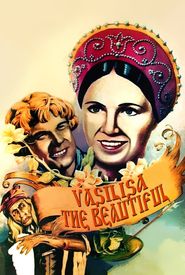Mariya Barabanova, a celebrated and accomplished thespian and film director, was born on November 3, 1911, in the vibrant and culturally rich city of St. Petersburg, which was then a vital component of the Russian Empire, a vast and powerful political entity that would eventually give rise to the modern-day nation of Russia.
Mariya Barabanova's illustrious career, spanning multiple decades, has left an indelible mark on the entertainment industry, with her remarkable legacy continuing to be cherished and revered to this very day. A diverse filmography, replete with iconic titles, serves as a testament to her unwavering dedication to her craft.
One such masterpiece is the 1943 cinematic achievement, Prints i nishchiy, a seminal work that showcases her remarkable artistic prowess. Furthermore, the 1965 production, Vsyo dlya vas, solidified her status as a true artist, cementing her position as a pioneer in her field.
In addition, the 1977 film, How Ivanushka the Fool Travelled in Search of Wonder, served as a platform for her extraordinary talent to shine, leaving an indelible mark on the world of cinema.
Mariya Barabanova's life was a resounding embodiment of her unshakeable commitment to her art, a lifelong pursuit that would eventually culminate in her untimely demise on March 16, 1993, in the storied city of Moscow, Russia.
As the curtain closed on her remarkable life, the world of Russian cinema was left to mourn the loss of a true luminary, whose indelible mark on the industry would forever be remembered as a testament to her unwavering passion and dedication.
Though her physical presence may have vanished, the profound impact of her work continues to reverberate through the annals of cinematic history, leaving an indelible imprint on the hearts and minds of audiences everywhere.
In a true tribute to her enduring legacy, Mariya Barabanova's remarkable body of work remains a beacon of inspiration, a shining testament to the transformative power of art to transcend time and touch the very fabric of our collective human experience.
























